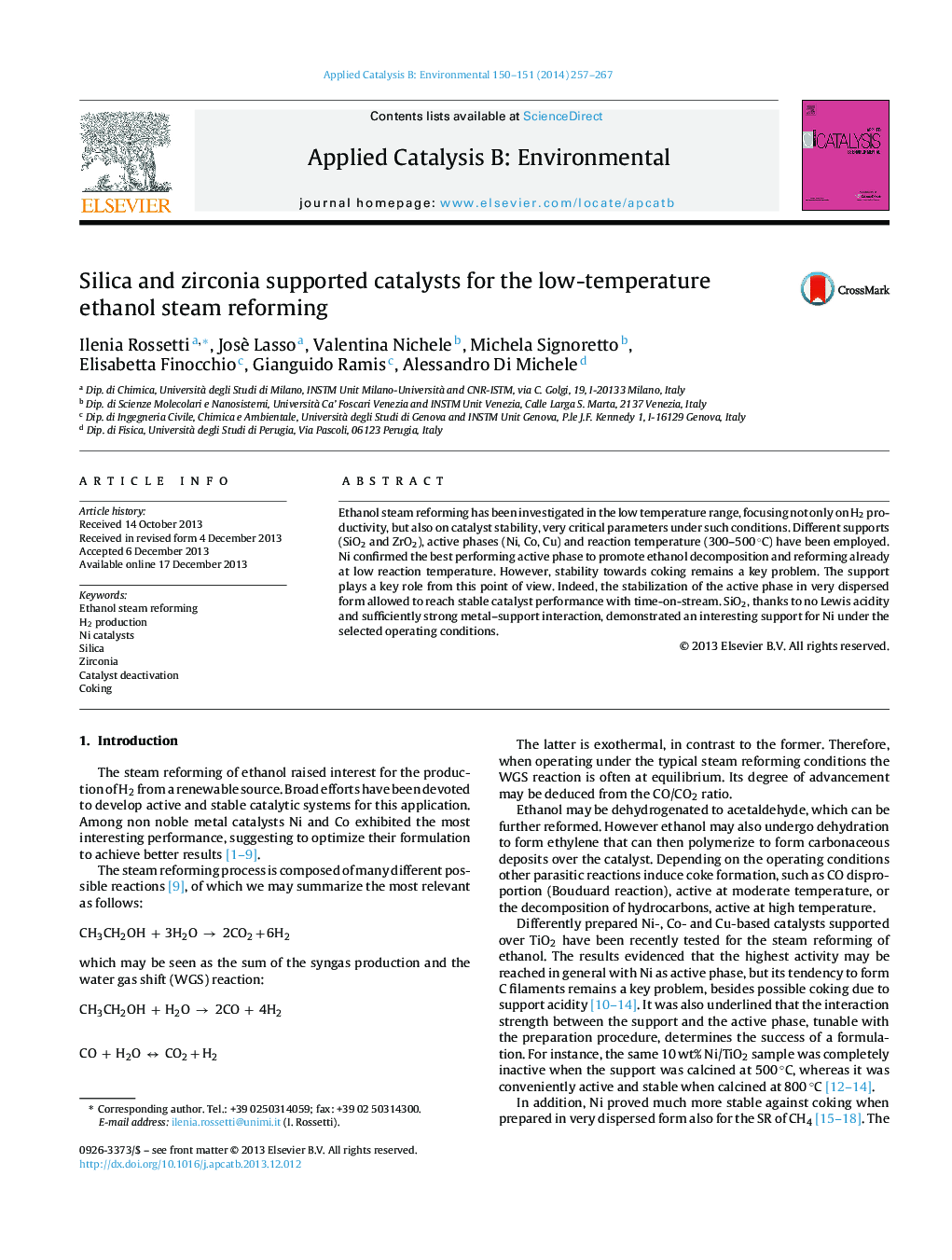| کد مقاله | کد نشریه | سال انتشار | مقاله انگلیسی | نسخه تمام متن |
|---|---|---|---|---|
| 45930 | 46427 | 2014 | 11 صفحه PDF | دانلود رایگان |
• Activity and stability are investigated for ethanol steam reforming at low temperature.
• Stabilizing the active phase in dispersed ensures stable catalyst performance.
• SiO2 demonstrated an interesting support for Ni.
• Strong metal–support interaction has pivotal importance for stability towards coking.
Ethanol steam reforming has been investigated in the low temperature range, focusing not only on H2 productivity, but also on catalyst stability, very critical parameters under such conditions. Different supports (SiO2 and ZrO2), active phases (Ni, Co, Cu) and reaction temperature (300–500 °C) have been employed. Ni confirmed the best performing active phase to promote ethanol decomposition and reforming already at low reaction temperature. However, stability towards coking remains a key problem. The support plays a key role from this point of view. Indeed, the stabilization of the active phase in very dispersed form allowed to reach stable catalyst performance with time-on-stream. SiO2, thanks to no Lewis acidity and sufficiently strong metal–support interaction, demonstrated an interesting support for Ni under the selected operating conditions.
Ni confirmed the best performing active phase to promote ethanol decomposition and reforming already at low reaction temperature (<500 °C). The stabilization of the active phase in very dispersed form allowed to reach stable catalyst performance with time-on-stream. SiO2, thanks to no Lewis acidity and sufficiently strong metal–support interaction, demonstrated an interesting support for Ni under the selected operating conditions.Figure optionsDownload as PowerPoint slide
Journal: Applied Catalysis B: Environmental - Volumes 150–151, 5 May 2014, Pages 257–267
